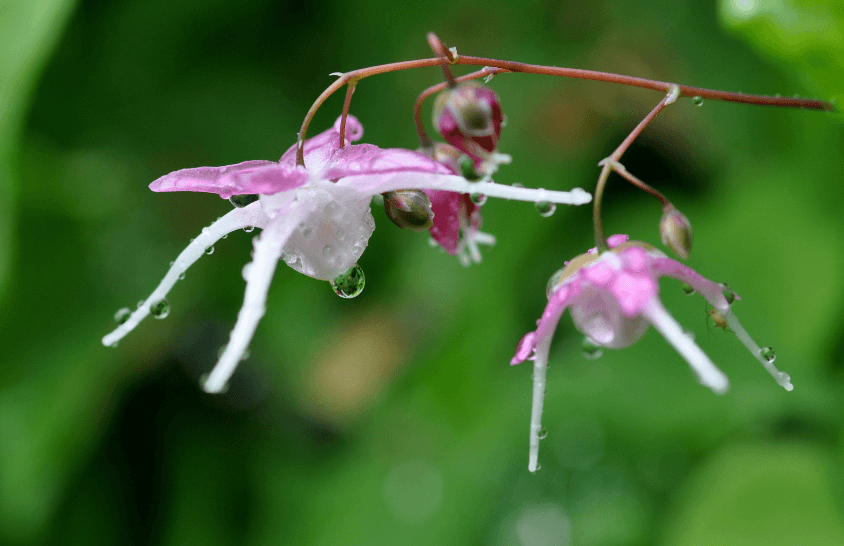
Epimedium
Share

Common Name Horny Goat Weed,Barrenwort,Bishop's Hat,Fairy Wings
Family Name Berberidaceae
Parts Used Leaves
Herbal Actions Aphrodisiac, Tonic, Anti-rheumatic, Immunomodulatory, Antioxidant
Health Benefits Libido Enhancement, Joint Relief, Immune Support, Antioxidant Protection, Energy Boost
What are the Benefits of Epimedium?
Bright, verdant leaves of Epimedium, commonly known as horny goat weed, have been celebrated for millennia in Traditional Chinese Medicine (TCM) as a revitalizing tonic for enhancing sexual health and fortifying the skeletal system. Energetically, this herb is recognized for its yang invigorating properties, with a slightly spicy taste and warm application. It stands as a pivotal herb in TCM, often employed to boost libido and alleviate symptoms of erectile dysfunction. Rich in icariin, Epimedium also acts as a powerful antioxidant, potentially aiding in improving blood flow and neurological health.
Frequently referred to as a natural aphrodisiac, this herb comprises active compounds that may support bone health, protect against osteoporosis, and reduce joint pain. This is likely why it's traditionally utilized beyond medicinal extracts, finding its way into daily wellness regimes through capsules, teas, and tinctures.
Historical Use of Epimedium
Epimedium, also widely known as horny goat weed, holds significant esteem among various ancient cultures, particularly within Traditional Chinese Medicine. The legend tells of a Chinese goat herder who noticed increased sexual activity in his flock after they grazed on this herb, leading to its popular name and recognition as a potent aphrodisiac. Revered for its medicinal properties, Epimedium has been used for centuries in China to support kidney and liver health and to strengthen the bones.
According to classical texts such as "The Compendium of Materia Medica" by Li Shizhen, a renowned Ming Dynasty herbalist, Epimedium is described as a vital energy (Qi) enhancer and a key agent in fighting against the effects of aging and fatigue. Traditional practitioners often prescribe it to enhance male virility, support joint function, and to bolster the immune system. Beyond its therapeutic uses, Epimedium has also been used in ornamental gardens of the nobility, admired for its delicate flowers and resilience, symbolizing grace and longevity in the plant kingdom.
Botanical Description & Habitat
Epimedium, commonly known as "fairy wings," is a herbaceous perennial native to the shaded woodlands of China and other parts of Asia and the Mediterranean. It thrives in moist, well-drained soils rich in organic material and prefers part to full shade, making it ideal for woodland gardens or shaded borders.
The plant features heart-shaped, often spiny leaves that may be evergreen or deciduous. In spring, it produces delicate, four-petaled flowers in white, yellow, pink, or purple, carried on slender stems above the foliage. These flowers are noted for their intricate spurs, resembling fairy wings, and contribute to the plant's ornamental appeal.
Epimedium's ability to adapt to various forest understorey environments makes it a favored choice in both ornamental gardening and traditional Chinese medicine for its health benefits and aesthetic qualities.
